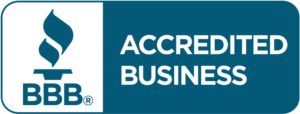Now that the new school year is starting, thousands of young people throughout New York are leaving home and heading off to college. This transition comes with a lot of newfound independence. Perhaps for the first time in their lives, college students will be tasked with managing their own schedule, choosing their own food and holding themselves accountable for completing their schoolwork.
Perhaps one of the biggest struggles that new college students face comes from managing their money. In addition to figuring out how to pay their tuition, students also need to fund many of their living expenses. Since they are legal adults, students can obtain credit cards in their own names. However, relying too heavily on debt can set students up for serious financial problems later in life.
College students who do decide to use credit cards would be well advised to educate themselves on how to use credit safely. A little proactive attention can go a long way toward promoting financial health. Start with the following tips:
- Set a budget: At the start of each semester, students should prepare a realistic budget based on their actual income and student loan living stipend. Sticking to a budget can help students hold themselves accountable and can help them avoid the temptation to charge expensive groceries or buy a new outfit for a party.
- Understand the terms: Before charging anything to a credit card, students should read the entire agreement to be sure they understand all the terms and what could happen if they miss a payment or make one late. It can be helpful to do this with a parent or another adult who has experience using a credit card.
- Remember that it’s a loan: Credit cards aren’t free money. Using a credit card is basically like taking out a loan every time you want to make a purchase. Every charge has to be paid back, with interest. Students should consider this principle whenever they are tempted to charge an expense.
-
Beware the minimum payment: Making the minimum payment every month will do little to reduce the amount owed and will likely lead to huge interest charges. While the best plan is to pay off the balance in full every month, students who cannot afford to do this should pay as much as is reasonably possible.
Bankruptcy for credit card debt issues
Following these tips will help students avoid getting weighed down by unmanageable debt. With that said, it is important to understand that solutions to credit card debt problems do exist. As with all problems, the issue is easier to address the sooner it is confronted.
In some cases, filing for bankruptcy can be the best solution to overwhelming credit card debt. In others, less intensive options may be available. If you are struggling to keep up with your credit card debt, talk to an experienced bankruptcy attorney who can review your case and help you understand your options.



Better Business Bureau
Bankruptcy Practice Spotlight
If you are facing a possible foreclosure, I can take my two-plus decades of experience to help you save your house.

I understand how stressful the prospect of losing a house can be and am committed to working one-on- one with you to understand all details involved in your financial situation.

